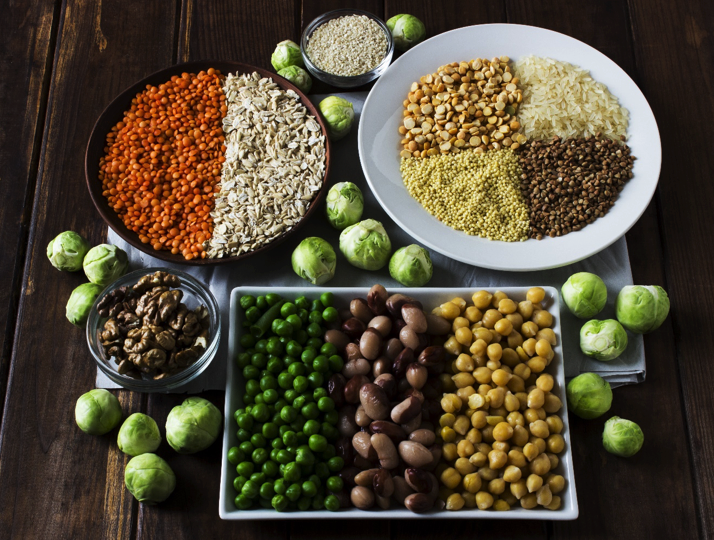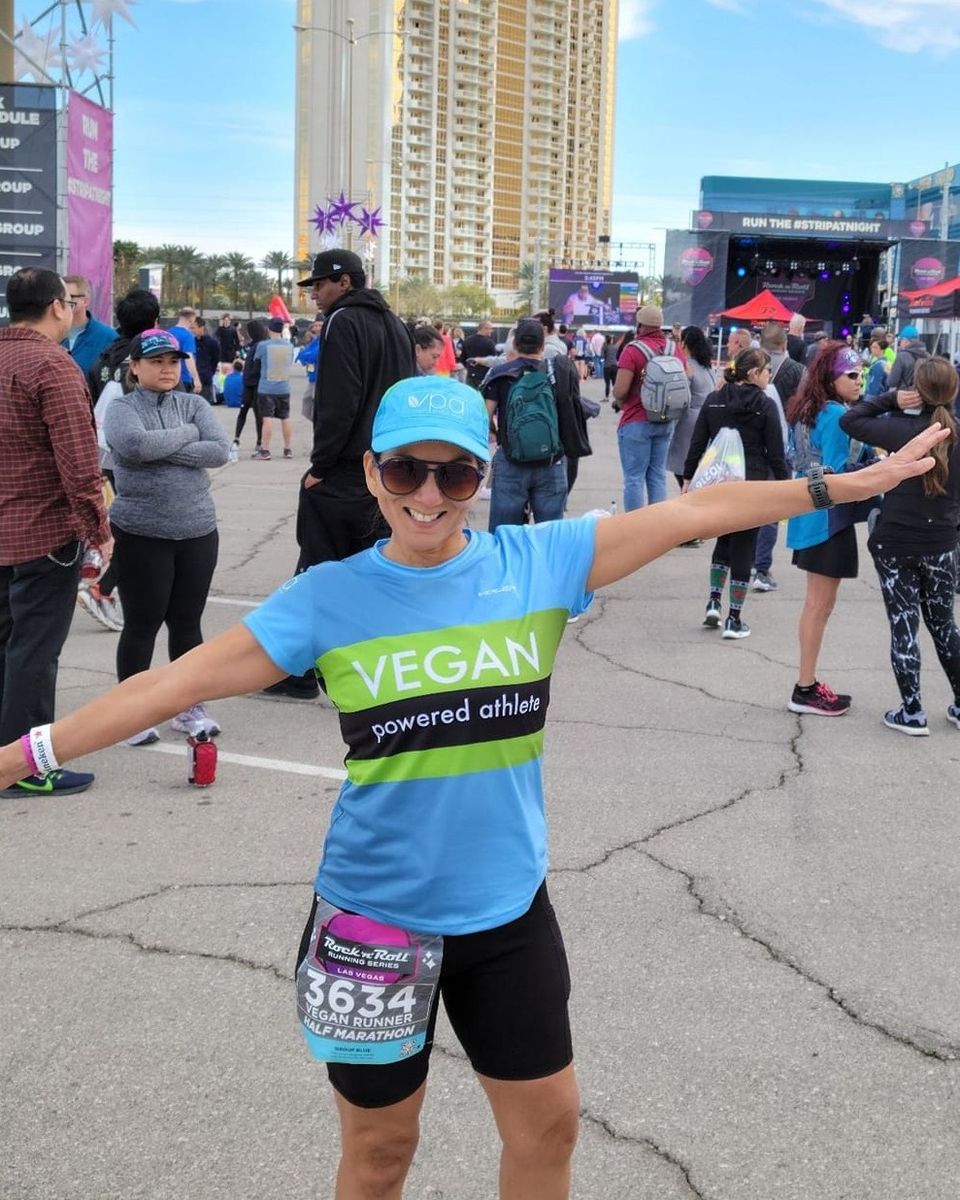
There are many common misconceptions about vegans, but the most repeated are related to vegan protein sources.
Let’s Talk Protein
- How Much Protein Do We Need?
The Recommended Daily Allowance (RDA) of protein is generally .8 grams per kilogram of weight. Vegans need slightly more, about .9 grams per kilogram (or .4 grams per pound), due to lower rates of absorption of plant proteins in the body. Athletes need a still higher intake. The American College of Sports Medicine, the Academy of Nutrition and Dietetics, and the Dietitians of Canada recommend 1.3-1.8 g/kg/day for vegan athletes.
- What Are Vegan Protein Sources?
A common misperception about vegans and protein relates to amino acids, the building blocks of protein. Animal proteins contain all 9 of the “essential” amino acids (essential just means that our bodies do not make these amino acids on their own). Plant proteins generally do not contain all 9 or are so low in some that they are not considered complete. Soy, for instance, contains all 9 but is very low in 2, methionine and lysine. But that doesn’t mean vegans cannot get all the amino acids in their diet. Rather, you just need to eat a variety of foods. For instance, rice and beans give you all the essential amino acids.
- Beyond Tofu
So, vegans don’t eat only tofu? Generally, no. Not healthy ones anyway. Vegan foods high in protein include quinoa, soy, beans, lentils, nuts, and seeds. There are also many vegetables that are high in protein: broccoli, peas, asparagus, potatoes, spinach, corn and avocado. (The United States Department of Agriculture has great resources on its website, including a chart with high protein vegan foods.)
Plant-Based Proteins Are Healthier
So, it’s possible to get enough protein on a vegan diet, but why should I give up all foods derived from animals? The short answer: because it is much healthier, and you will live longer.
- Vegans Can Lower Their Risk of Chronic Disease
Adopting a vegan diet can lower the risk, counteract the genetic likelihood of developing, and even reverse chronic disease. Vegans have a lower risk of cardiovascular disease, obesity, type 2 diabetes and some cancers. Research has even suggested that plant-based diets may be a cost-effective intervention to lower body mass index, blood pressure, and cholesterol levels, in turn reducing the number of medications needed to treat chronic diseases.
- Vegans Live Longer
Additionally, the long-term health benefits of a vegan diet are clear. Studies suggest that vegans have a lower risk of dying from cardiovascular disease, kidney disease, cancer, and osteoporosis. One study conducted by researchers at Massachusetts General Hospital showed that every 3% increase in calories from plant protein reduces an individual’s risk of death by 10%.
There are other factors related to diet and lifestyle that may affect these results, but research is increasingly supporting the proposition that eating plant proteins instead of animal proteins can increase your lifespan.
Vegan Sources Make You Stronger
- Plant Protein Is Just as Good as Animal Protein for Muscle
Recent data shows that plant protein is as effective as animal protein for muscle building. The key to improving muscle health is a higher protein intake regardless of source. Additionally, consuming vegan protein sources exclusively has no impact on musculoskeletal health, for men or for women.
- Healthy Vegan Diets Are Paying Off for Athletes
Finally, a healthy vegan diet pays off on the court, the field and the trail. From bodybuilders to ultrarunners, NFL players to tennis champions, today’s athletes are proving to the world that vegans can be strong and can win.







